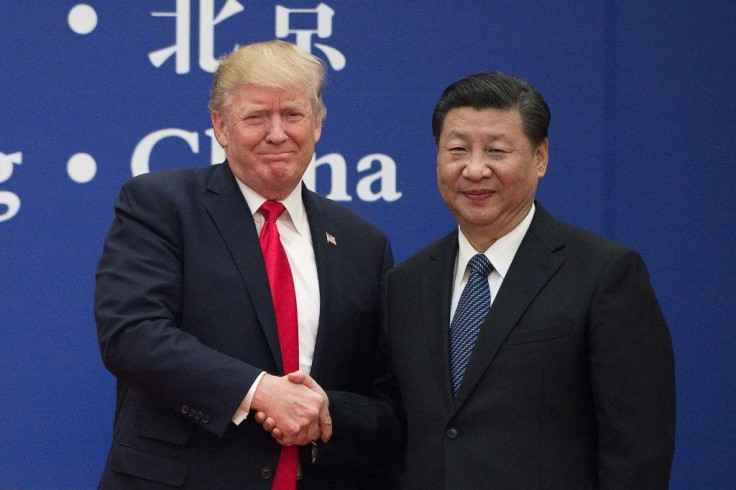Trump Bans US Investments In 31 Companies Controlled By China's Military
KEY POINTS
- U.S. firms and investors are blocked from owning shares in several Chinese companies
- The block aims to prevent the development of Chinese military and intelligence
- The ban applies to 31 Chinese firms, including Huawei
President Donald Trump on Thursday signed an executive order that banned Americans from investing in a list of companies that the administration believes support the Chinese military.
The order — which blocks American firms or individuals from investing or owning shares — applies to 31 Chinese companies. It will take effect on Jan. 11, 2021.
Chinese companies such as Huawei, Hikvision, Inspur Group, Panda Electronics Group, China Telecommunications Corp. and China National Nuclear Corp. were blacklisted, the initial list released by the Department of Defense in June noted.
The Trump administration said the executive order is designed to prevent U.S. companies or individuals from enabling "the development and modernization” of the Chinese military, CNBC reported.
“The People’s Republic of China (PRC) is increasingly exploiting United States capital to resource and to enable the development and modernization of its military, intelligence, and other security apparatuses,” the order read.
The investments “allow the PRC to directly threaten the United States homeland and United States forces overseas, including by developing and deploying weapons of mass destruction, advanced conventional weapons, and malicious cyber-enabled actions against the United States and its people.”
American investors are also banned from owning or trading any securities that originated from the blacklisted firms, including pension funds or shares. Any firm or individual who has connections with the Chinese firms listed will have until November 2021 to divest from the companies.
The latest ban is one of a series of actions Trump is expected to take before President-elect Joe Biden is sworn to office on Jan. 20. The administration may also take action on immigration and health care in the coming weeks, Politico noted.

Trump’s executive order is the latest in a flurry of bans the administration has imposed in recent months. On Sept. 19, the Trump administration issued an order that banned Chinese mobile apps TikTok and WeChat from U.S. app stores.
Administration officials said the ban protects the country’s national security and prevents the Chinese government from using the apps to collect information from its users. The new measure also aimed to block Beijing from disseminating propaganda. Violating the executive order could lead to fines of up to $1 million and up to 20 years imprisonment, The New York Times reported.
The Trump administration has also issued export restrictions that blocked the sale of U.S. semiconductors and other technology to Chinese firms. The order now requires U.S. companies to be given a license to export specific technology to Semiconductor Manufacturing International Corp. (SMIC), The Washington Post reported.
© Copyright IBTimes 2024. All rights reserved.






















